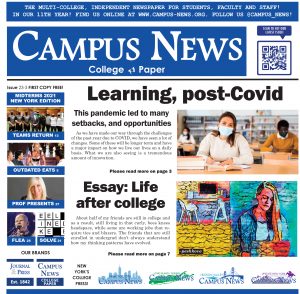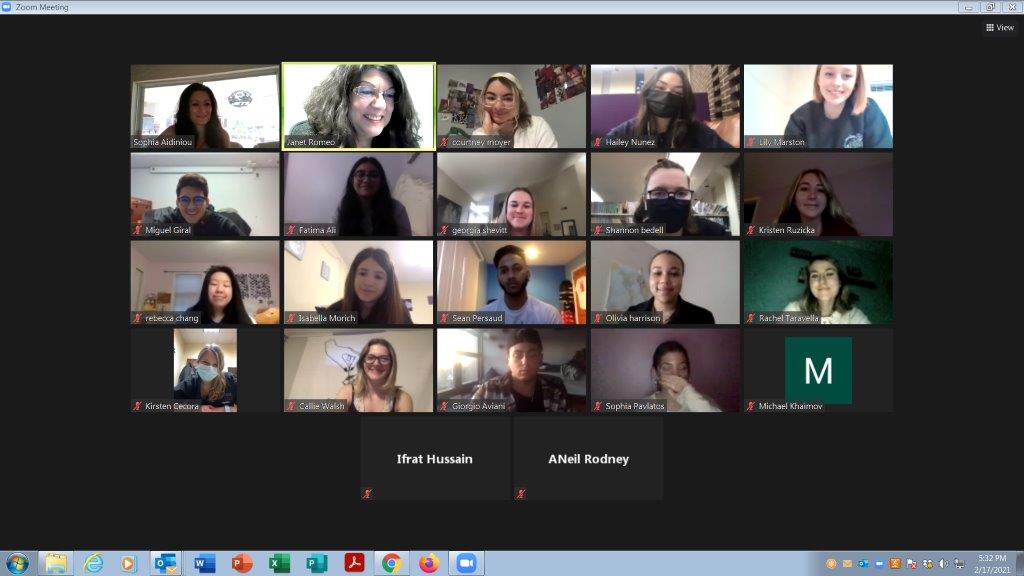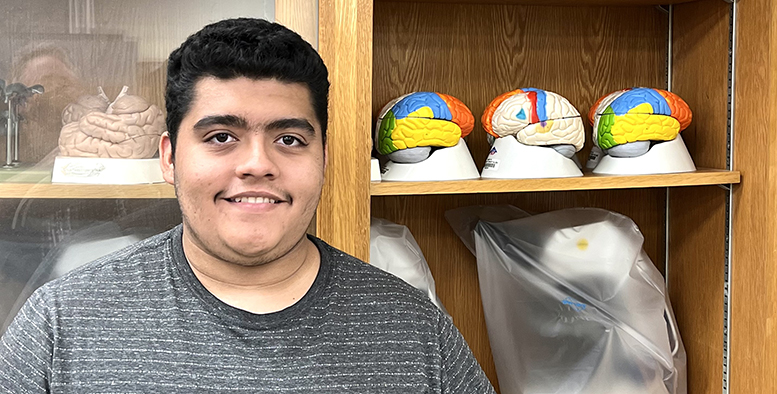By Wendy O’Neill
Campus News
Two longtime friends and colleagues in the health field have collaborated to deliver a dynamic educational opportunity for aspiring Community Health Workers at Nassau Community College (NCC) in Uniondale, Long Island, NY. Health Professor Sophia Aidiniou, joined by Janet Romeo, Community Education Coordinator for the Epilepsy Foundation Long Island, have teamed up to prepare students for new and rewarding careers as Community Health Workers, while also shedding light on epilepsy and seizure disorders – which affect 3.4 million people in the United States.
This innovative certificate program offers students six college credits while gaining the skills, tools and confidence needed for a career as a Community Health Worker. Coursework explores a range of topics from fundamentals in community health to first aid, cultural awareness, mental health, computer literacy and leadership training. Following their successful completion, students go on to work in healthcare organizations and human services agencies, or in not-for-profit settings where each student can become a valuable community health resource and healthcare advocate.
An Evolving Partnership
The Fundamentals of Community Health curriculum for the program was conceived in 2018 by Professor Aidiniou, who drew on her teaching experiences and professional connections to structure the curriculum. In 2005, while teaching high school health, Aidiniou developed a collegial connection with Janet Romeo, who would regularly visit her classes to provide students with information and resources on epilepsy. In addition to the Community Health Worker Certification Program offered through NCC’s Workforce Development Department, Ms. Romeo and Professor Aidiniou, have collaborated to bring epilepsy awareness and education to additional students in the Health and Physical Education Department HED 293 Community Health Course.

Professor Aidiniou invited the Epilepsy Foundation Long Island to provide future Community Health Workers with an additional training certification specific to epilepsy via online learning. The Seizure Recognition and First Aid Training program prepares students to recognize and respond to seizures and leads to a two-year certification. “The Foundation’s goal is to build greater awareness and understanding of epilepsy, and help improve the quality of life of individuals with seizure disorders,” says Romeo. “I am grateful to be a part of this important educational opportunity and play a role in bringing the expertise of the Epilepsy Foundation Long Island to Nassau Community College. Together, we are continuing to make great strides in lifting the stigma of seizure disorders throughout the communities we serve.”
From Concept to Covid-19
During the Covid-19 pandemic, colleges across the U.S. have had to modify their instruction plans and adapt to socially distanced teaching methods. And while the course is currently taking a distance learning approach via Zoom Meeting, the popular program still makes a lasting impression. Sangeeta, a recent student whose frequent Zoom Meetings became a normal part of her college experience, commented to Professor Aidiniou, “Thank you for keeping our minds challenged and our spirits strong!”
Aspiring community health students like Sangeeta may have recently changed careers or are newly entering the work force. They prepare to work as part of a Community Care team which includes doctors, nurses, therapists and social workers to conduct home visits, facilitate transportation ad patient appointments, link patients to supportive services and teach patients self-management techniques with the goal of improving health outcomes. Successful students go on to become health coaches, community health advocates, health educators, outreach workers, peer counselors and patient navigators.
Former student, Anthony, credits the course and his instructors with preparing him for his budding career. While enrolled in the NCC program, he completed an internship with the Epilepsy Foundation Long Island and later landed a rewarding job as Community Health Worker with the Economic Opportunity Council of Nassau County.
Professor Aidiniou explains that their students gain more than textbook knowledge. They are provided with direct access to health professionals in the field, which is both valuable and empowering. “Janet and I are passionate about broadening our students’ minds and giving them opportunities to be successful. We work well together and go back 15 years, teaching in the classroom. We definitely play off each other’s strengths and bring different elements of expertise.”
The litmus test for the program’s success ultimately comes down to the students’ gainful employment, sustained enrollment, and positive student feedback. “We are confident that this course has made a lasting impression on our students and they are well prepared to share their knowledge as they go out into the workforce and the community,” Aidiniou adds.
Epilepsy affects men, women and children and is often undiagnosed or misdiagnosed, especially in rural areas and in communities of color where specialized health care may be limited. As a result, people of all ages may suffer physically, socially and psychologically, because of gaps in education and training. Through this fulfilling partnership, tomorrow’s health workers will enjoy rewarding careers and be well equipped to improve lives.





Facebook Comments